How to Motivate Nursing Staff in Hospitals The Right Way
If you’re in charge of running a hospital or large facility you want to keep employees with your company as long as possible. So how do you ensure that they stay? Here are 15 tips to motivate nursing staff in hospitals, starting at the moment you hire them.

If you’re currently a nurse you have nothing to worry about. Your career field has only become more sought after over the last 20 years. The growth rate for registered nurses (RNs) is sitting at 19%, and there will be more than half a million new positions by 2022.
This is exciting to hear if you’re looking for a career in this area. But this news isn’t as great for hospitals. Unfortunately, more hirings opens the door to a potential workforce shortage.
From 2017 to 2030, there was an expected retirement of one million RNs. This was equivalent to 1.7 million years of experience lost from 2015. A large retiring population means a decrease in professionals and years of experience.
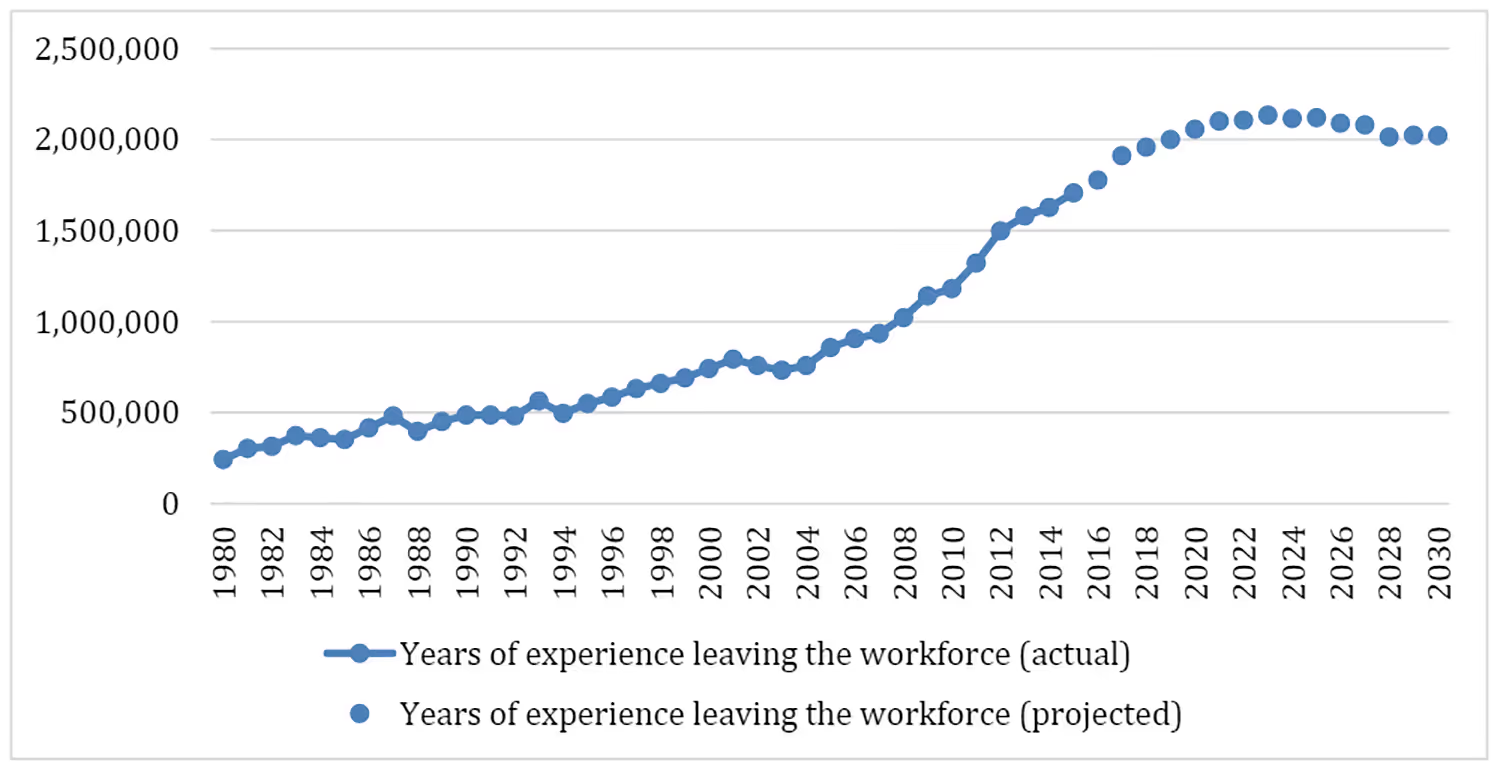
Not only are the experienced professionals leaving, but there’s a high turnover rate for younger workers within this field. Around 18% of new RNs leave their first job in the first year. One-third leave within the first two years.
People leave their jobs for a variety of reasons, but one of the most prevalent causes is high stress. Which only increases when hospitals have staff shortages. Current employees already work long shifts, but they’ll end up working overtime when facilities are short-staffed.
If you’re in charge of running a hospital or large facility you want to keep employees with your company as long as possible. So how do you ensure that they stay?
Here are 15 tips to motivate nursing staff in hospitals, starting at the moment you hire them.
Develop Your Brand
The first step to having a motivational environment is to create a strong brand. This is what ultimately attracts people to work for you. Their motivation starts early because they want to work for a well-known, pre-existing company with a positive reputation.
Building your brand takes time, but eventually, it will attract people to work for you. Think about some of the most well-known hospitals. Mayo Clinic, Kaiser Permanente, or St. Jude Children’s Research Hospital might pop into your head. If they didn’t, I bet that they sound familiar now that I mentioned them.

Each of these has different reasons for being well-known. For example, you most likely know St. Jude for their role in fundraising for cancer research. Even though they’re known for different things, they all continue to uphold their brand.
Now, I understand that not every hospital can have a reputation like these large facilities. But focusing on building a positive brand locally will help attract employees to your facility. They’ll start their first day highly motivated just to work for a popular company.
Perfect Your Onboarding
Once people know your company and apply, you need to have an excellent onboarding process. From the time that employees accept a job, their experience with your company begins.
First, send them an official offer letter that gets them excited to join your team. After welcoming them, you need to continue communication so they complete all steps between their offer and first day on the job. This might include any tax and payroll forms, training videos, or contract signings.
Once they begin, you need to make sure that they have complete training and orientation.
New nurses go through a period where they shadow a mentor to learn the ropes. It’s helpful to keep the new employees with the same mentor during their orientation. That way, this trainer knows where they’re at in their orientation. This ensures that there isn’t unnecessary repetition or gaps missing in something they should’ve learned.
Before you have your nurses start completely alone, meet with them to discuss how training is going. Everyone learns at a different pace, so communicate with them. They’ll be more comfortable to ask questions if you initiate this discussion.
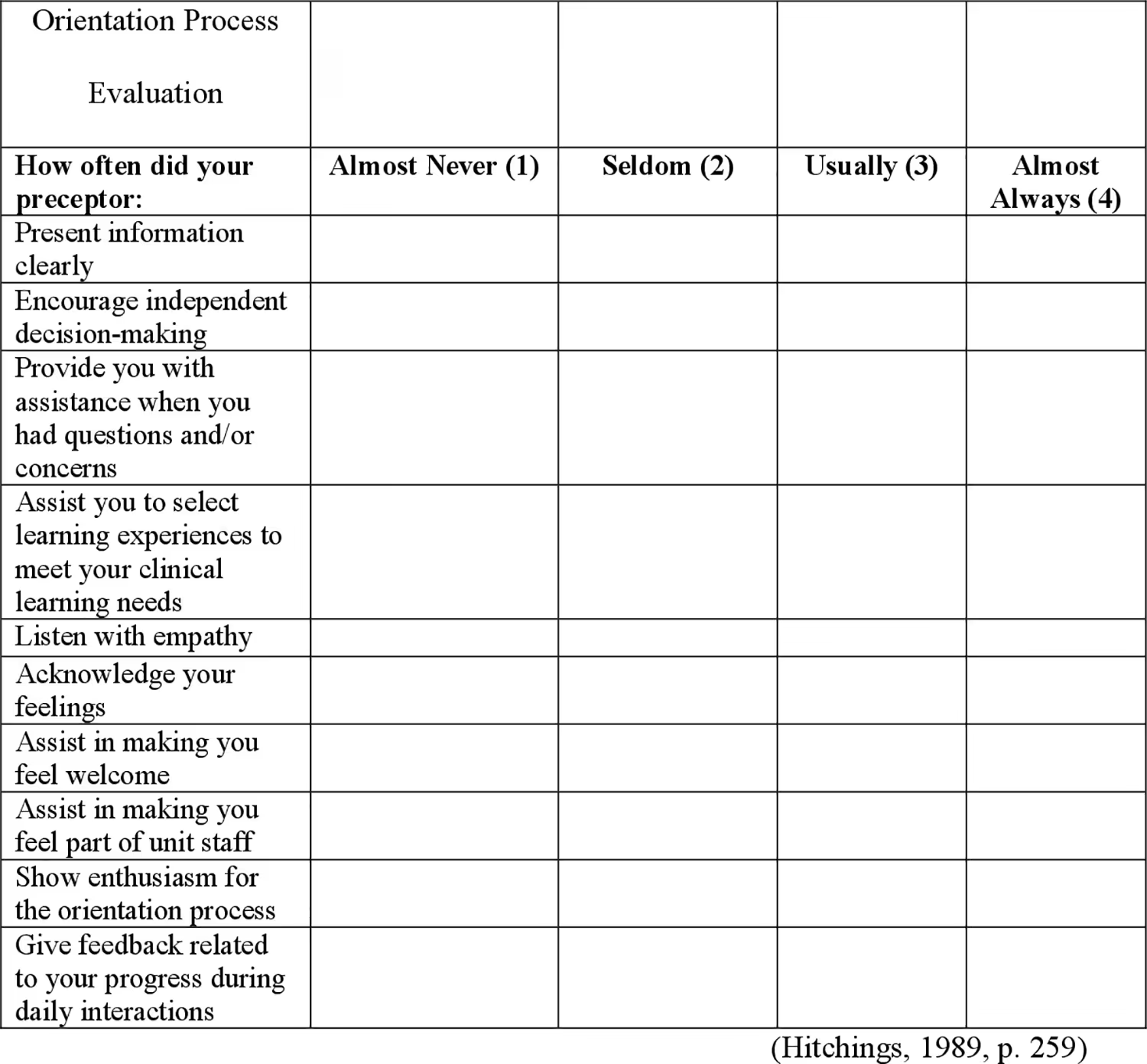
They might also prefer more time with their mentor before feeling confident on their own.
Generally, following a mentor lasts three to six months within this field. Some nurses will be ready sooner, while others will want to take advantage of more time with a mentor. This depends on the type of unit, such as a fast-paced critical care floor.
No matter how short or long it takes, nurses will have more motivation if they’re confident with their preparation.
Clearly Define Roles
Other than training new nurses on what to do, give them a clear definition of their role.
It can be intimidating to step up to help if they don’t know what their superiors expect of their role. Likewise, nurses won’t be able to recognize inappropriate behavior by other staff if they don’t know what their roles are, either.
Specifically defining each role motivates staff to take action when needed. They won’t feel like they’re overstepping in someone else’s position. And they’ll know what kind of behavior or errors they should report.
Both physicians and nurses have the legal and ethical obligation to report risks, benefits, and alternatives. But nurses are only 23% to 54% likely to report an error, compared to 71% to 74% by physicians. This may be due to the idea that doctors have authority over nurses, so they don’t know how to step up when they should.
But if each individual’s role is clearly defined, then they’ll know how to take appropriate action and respond in necessary situations.
Give Them Space
Once a nurse completes training, superiors need to give them space.
Just as some people may need extra time with a mentor, others will find it insulting if they’re training for an unreasonable amount of time. Constant supervision will start to feel like hand-holding. Hovering gives the impression that they aren’t trustworthy or skilled enough.

Micromanaging kills motivation.
One study found that out of 79% of respondents who experienced micromanagement, 68% considered changing their job because of it. Seventy-one percent said that this micromanagement interfered with their job performance.
Of course, this is an important role where situations pop up when lives are on the line. But if your workers aren’t making mistakes and have completed all required training, then give them their space to apply their skills.
Lead By Example
As a health provider, don’t live by the phrase “do as I say, not as I do.”
Your actions as a superior will impact the actions of your staff. They won’t have the motivation to fulfill their roles if you can’t do yours. There will also be confusion about what’s permissible.

Let’s say you discuss patient health information without consent. You’re just being nosy, so you’re gossiping about a patient’s condition. While this isn’t permissible, others will start to question what is or isn’t allowed. After all, if their superior is doing it, then it must be okay for them to do it.
Eventually, your staff will then start following your inappropriate behavior. Thus, you’ll soon face a HIPAA violation from your nursing staff.
One study found that only 26% of workers strongly agreed that superiors showed the same values that they expected from employees. This means there’s a lot of room for improvement among management.
There’s less motivation to follow the rules if the person who should be enforcing them isn’t even following them. Because of this, you need to make sure you lead by example. Whatever you expect from your staff, you need to do the same.
Show Respect for Your Team
These health heroes get recognized by the public for serving those who need the most care. This might come as a surprise, but they don’t feel this same respect at work.
When asked about the worst part of nursing, lack of respect was a concern for many. It was the number two complaint from licensed practical nurses as 18% said that disrespect was a drawback of nursing. For nurse practitioners, 12% reported feelings of disrespect. Another 7% of RNs felt disrespected.
Disrespect can come from anyone working in the hospital. A study found that 45% of workplace bullies are managers and 25% are higher-ups. If it comes from these superiors, then nurses are less likely to report it and the issues won’t get resolved. Instead, they become unhappy and want to leave their positions.
Half of RNs have considered leaving the profession, in part due to disrespect. After all, why would someone stay at a job where they don’t feel valued? Showing respect is necessary so your staff wants to continue working at your hospital.
Foster and Cultivate Teamwork
Team nursing is one approach that helps motivate nursing staff. This concept pairs workers together to deliver care. For example, instead of each nurse having five patients, two will have ten.
This makes employees share responsibility and use their diverse skills. If a patient needs more attention, the RN doesn’t need to stress about the other patients since there’s another worker assigned to them.
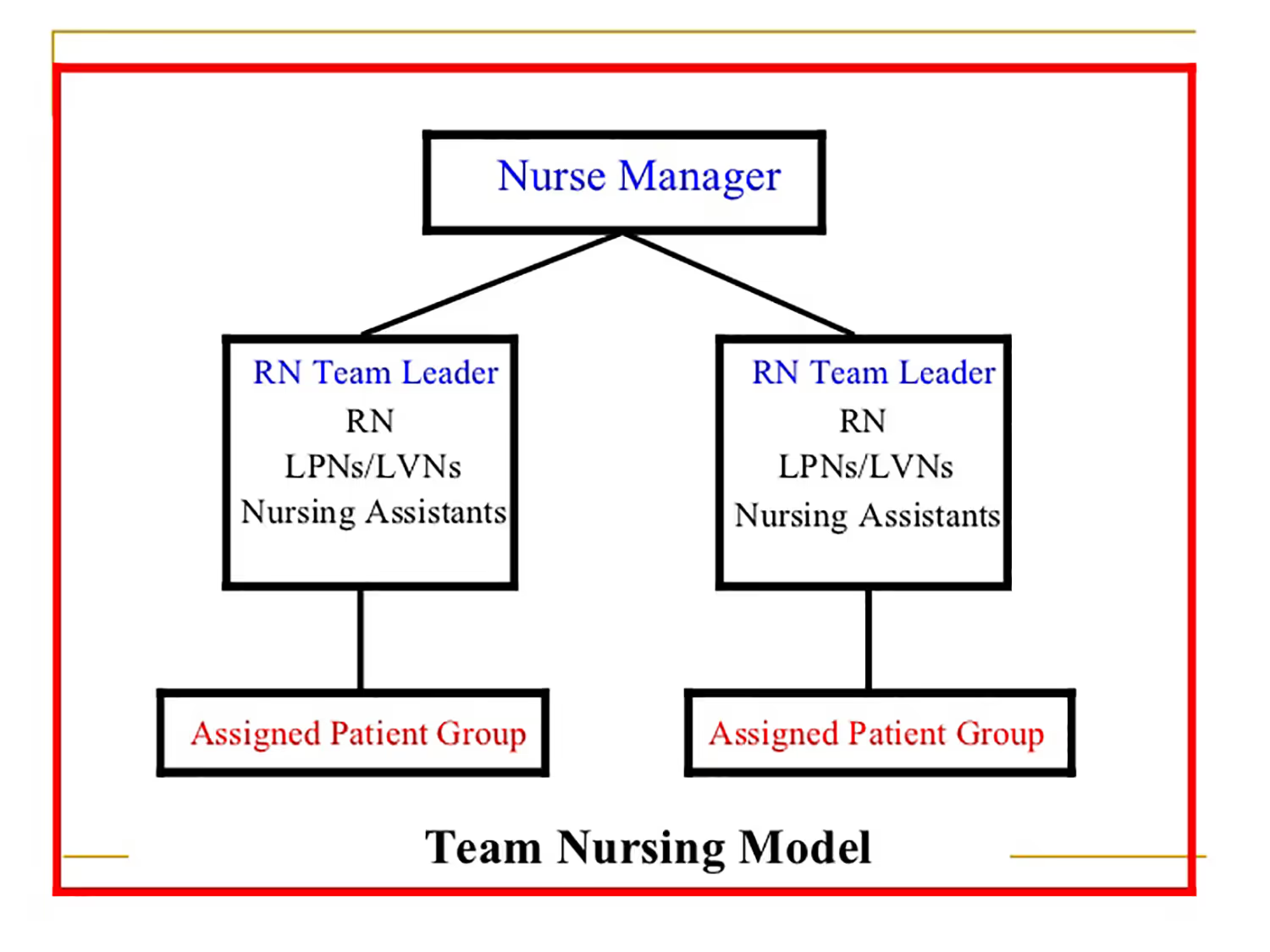
Staff surveys indicated that 61% of nurses who used this model felt supported during their shift.
Satisfaction increased by over 10%, and continuity of care increased by over 45%. The model also makes peers hold each other accountable.
Encourage and Promote Feedback
Even though team nursing boosts satisfaction, not everyone is comfortable sharing their opinions. Not all voices get equally represented, especially in meetings.
One study found that only 34% of RNs felt that they could challenge other team members in their meetings.
Encourage each staff member to use their voice. Since some feel intimidated in open discussions, you can ask for feedback through a survey or one-on-one meetings. These give each person the option to share their thoughts in private or anonymously.
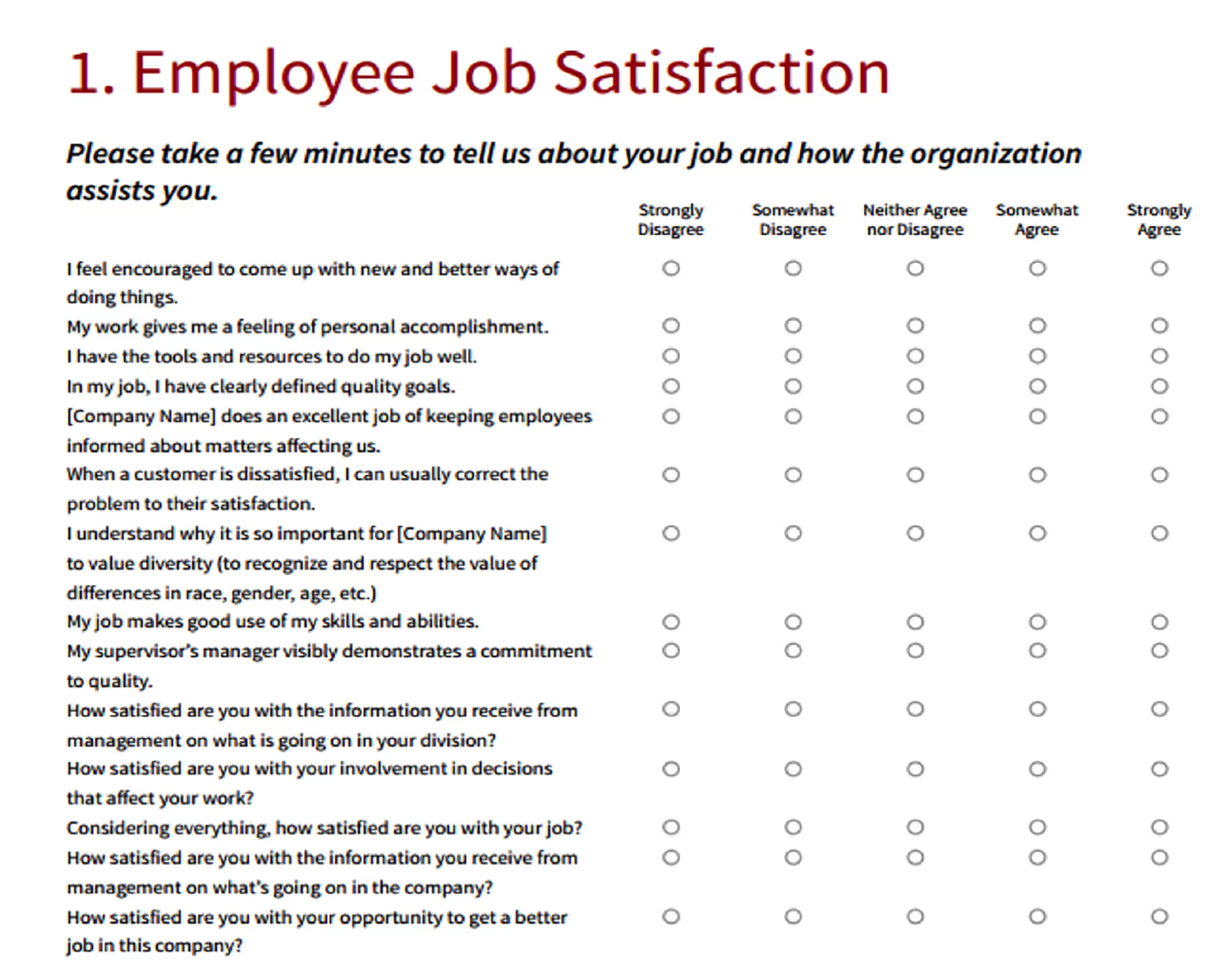
Make sure to act on this feedback, though. If you ask for input and then change nothing, your staff will start to assume that you don’t value their opinion. If they get the sense that nothing will change based on their suggestions, they won’t have the motivation to stay long-term.
Celebrate Accomplishments
One of the easiest but most effective ways to keep people motivated is to recognize their accomplishments. Giving them praise when they do well encourages them to continue their hard efforts since they know they’ll get recognition.
A study found that around 32% of participants received praise often or very often. They show more job satisfaction and describe a more positive work climate than those who rarely or very rarely received praise.
Those who don’t get adequately recognized are three times more likely to say that they’ll leave their job in the next year. Over half of employees who report low morale rated recognition from their manager as poor.
If you keep up with celebrating your staff’s good performance, they’ll know their value at the hospital. This makes them more likely to stay since it’s a positive and uplifting work environment.

Use Performance Reviews
Of course, there may be times that people don’t deserve praise. Everyone makes mistakes, and medical errors aren’t uncommon.
But don’t scold them especially in front of others. There are better ways to give criticism than by embarrassing them, too. It’s not like people want to make mistakes, so they’ll already feel upset. Shaming them will make them feel worse.
Instead, use individual performance reviews to address where the employee needs to improve. Help them come up with actual solutions rather than just telling them they need to get better. Set goals together so they have the motivation to work toward those improvements.
This is also a good chance to give praise in areas that they’re succeeding. That way, they don’t feel completely discouraged. You can also get their feedback during these meetings, as mentioned before. There might be something hindering them to succeed. Getting their feedback shows that you want to make their experience the best so that they can improve.
Provide Emotional Support and Burnout Programs
Because of the stress of healthcare jobs, workers face high rates of emotional fatigue. One-third experience symptoms of high burnout. A study found that 65% of nurses reported that they had symptoms of mental health issues within 12 months.
Unfortunately, it isn’t always managed.
There’s a stigma around mental health that makes healthcare workers neglect to get help. They feel like they shouldn’t need to get help since they’re the ones taking care of patients. When it goes unmanaged, it just gets worse.
Encourage your team to seek help if they need it and take preventative measures. Don’t shame them for needing professional help themselves because nursing is such a stressful career. It’s even better if you can offer programs to combat burnout and access to mental health professionals and programs.
This encourages them more to take care of themselves. And if they can start improving their mental health, they will have more motivation to continue working instead of leaving the field.
Almost 50% of nurses considered leaving in the last two years, so it’s necessary to address the mental health concerns before they start plaguing staff.
Host Stress-Relieving Events
Providing resources for mental health is the first step. But also having stress-relieving activities boost motivation.
A study found that 79% of graduates believe that fun in the workplace is important, and 44% believe it encourages a harder work ethic.
These activities promote company culture so that the staff will want to stay with your practice. It’s a reminder that you care about their well-being and value the work they do.

Giving them something to look forward to helps get them through long shifts and difficult patient experiences.
Improve Break Rooms
Health workers have such long shifts and spend so much time on their feet.
Designated break areas are necessary so they can relax. This way they’ll feel refreshed and motivated when they go back to caring for their patients.
You need to make sure there’s enough space in break rooms to accommodate everyone using it at once. Adequate seating makes it possible for them to rest since they’re on their feet all day.
Occasionally providing food is another bonus. If nurses don’t have enough time to take a break, it’s nice to be able to have a quick snack. They’re going to struggle through their shift if they’re hungry so being able to grab something between patients will give them an extra boost.
Provide Resources for Higher Education
More than 75% of healthcare employers mandate or prefer nurses with a Bachelor’s degree over an Associate's degree. The Institute of Medicine challenges this field to increase the number of BSN-prepared nurses to 80% of the workforce by this year.
Demand for advanced practice nurses is also increasing since there’s a shrinking number of physicians.
Hospitals need to make it feasible for their staff to obtain higher degrees. With inconsistent work schedules, it’s hard for employees to commit to going back to school. Solutions for this are to use self-scheduling or keep those who are in school on consistent schedules. Managers should also make it easier for trading shifts and not penalize anyone if they need to switch when they work.
Something else that hospital administration should consider is the cost of schooling. Since they prefer nurses with higher education, they should help make this possible with financial aid.
Many hospitals pay for nursing school through a tuition-reimbursement program. This could be up to as much as 100%.
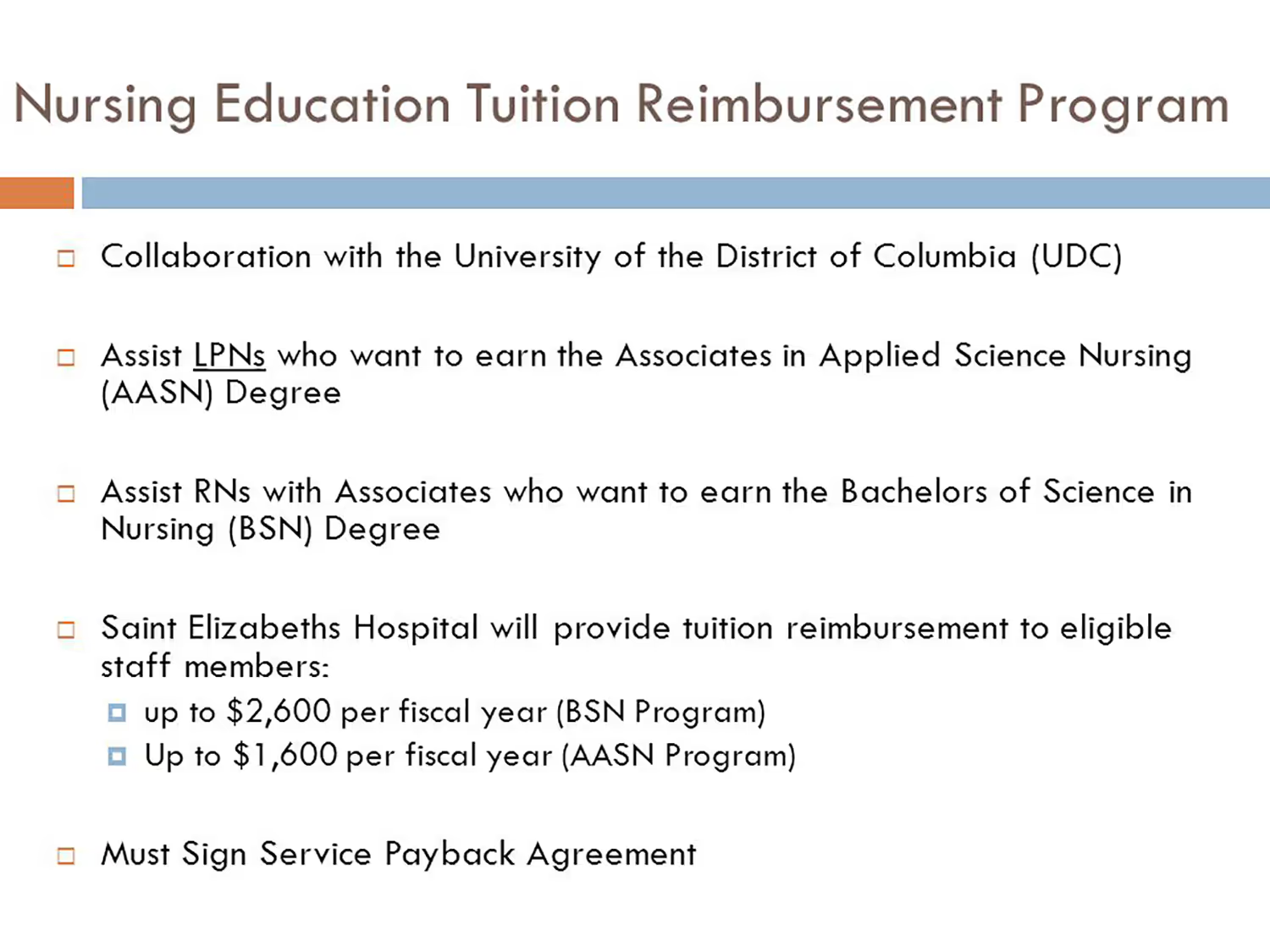
It motivates nurses to get a higher degree if their employer will be flexible with their schedule and help pay for it. But it also benefits the hospital to do this since it ensures they keep the best employees especially if there’s a shortage.
Offer Good Benefits
When I talk about benefits, I’m not referring to health benefits for your employees. I’m talking about the other incentives that make people want to stay.
Making it possible for staff to go back to school is one of these benefits. It will set you apart from other hospitals that don’t make it as easy to do.
Other incentives are vacation time, mental health and sick days, and self-scheduling. These give staff control of their personal life to better balance with their jobs. That way they don’t feel like work is completely consuming them. By having time outside of work for personal activities, they’ll experience less burnout and be more productive.
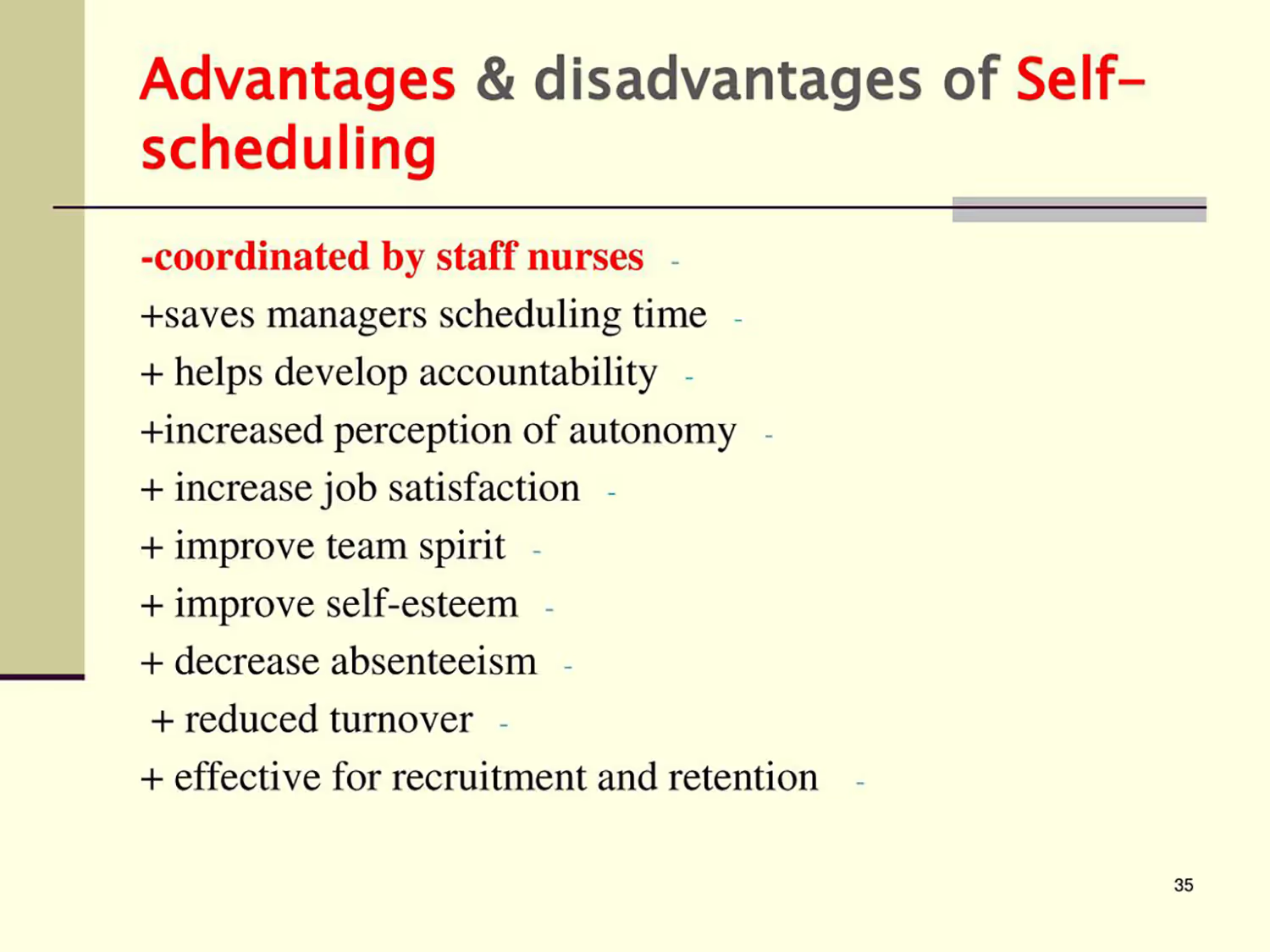
Some companies even mandate vacation time.
The United States is behind other developed countries in having this mandate. But one study looked at the effects of doing so. A company forced its employees to go on paid vacation. If they contacted the office at all during that time, they wouldn’t get paid for those days. After the trial, the managers rated employee productivity at an increase of 13%. Happiness also increased by 25%.
Nurses can enjoy this same benefit. It gives them the chance to relax away from the chaos of patient care and balance work and personal life.
Conclusion
There will always be staff that comes and goes from your hospital. People get new jobs all the time. But for your practice, you want to keep them with your company as long as possible.
High turnover rates lead to short staffing, and other employees will need to work overtime to make up for that. This only increases their already-existing stress.
When you hire new nurses, you want to motivate them to stay with your company. This motivation starts before they even apply
You want to stand out among other hospitals so they’ll want to join your team for the long haul. And once they do join, you need to continue that motivation each day.
Emphasize your product's unique features or benefits to differentiate it from competitors
In nec dictum adipiscing pharetra enim etiam scelerisque dolor purus ipsum egestas cursus vulputate arcu egestas ut eu sed mollis consectetur mattis pharetra curabitur et maecenas in mattis fames consectetur ipsum quis risus mauris aliquam ornare nisl purus at ipsum nulla accumsan consectetur vestibulum suspendisse aliquam condimentum scelerisque lacinia pellentesque vestibulum condimentum turpis ligula pharetra dictum sapien facilisis sapien at sagittis et cursus congue.
- Pharetra curabitur et maecenas in mattis fames consectetur ipsum quis risus.
- Justo urna nisi auctor consequat consectetur dolor lectus blandit.
- Eget egestas volutpat lacinia vestibulum vitae mattis hendrerit.
- Ornare elit odio tellus orci bibendum dictum id sem congue enim amet diam.
Incorporate statistics or specific numbers to highlight the effectiveness or popularity of your offering
Convallis pellentesque ullamcorper sapien sed tristique fermentum proin amet quam tincidunt feugiat vitae neque quisque odio ut pellentesque ac mauris eget lectus. Pretium arcu turpis lacus sapien sit at eu sapien duis magna nunc nibh nam non ut nibh ultrices ultrices elementum egestas enim nisl sed cursus pellentesque sit dignissim enim euismod sit et convallis sed pelis viverra quam at nisl sit pharetra enim nisl nec vestibulum posuere in volutpat sed blandit neque risus.

Use time-sensitive language to encourage immediate action, such as "Limited Time Offer
Feugiat vitae neque quisque odio ut pellentesque ac mauris eget lectus. Pretium arcu turpis lacus sapien sit at eu sapien duis magna nunc nibh nam non ut nibh ultrices ultrices elementum egestas enim nisl sed cursus pellentesque sit dignissim enim euismod sit et convallis sed pelis viverra quam at nisl sit pharetra enim nisl nec vestibulum posuere in volutpat sed blandit neque risus.
- Pharetra curabitur et maecenas in mattis fames consectetur ipsum quis risus.
- Justo urna nisi auctor consequat consectetur dolor lectus blandit.
- Eget egestas volutpat lacinia vestibulum vitae mattis hendrerit.
- Ornare elit odio tellus orci bibendum dictum id sem congue enim amet diam.
Address customer pain points directly by showing how your product solves their problems
Feugiat vitae neque quisque odio ut pellentesque ac mauris eget lectus. Pretium arcu turpis lacus sapien sit at eu sapien duis magna nunc nibh nam non ut nibh ultrices ultrices elementum egestas enim nisl sed cursus pellentesque sit dignissim enim euismod sit et convallis sed pelis viverra quam at nisl sit pharetra enim nisl nec vestibulum posuere in volutpat sed blandit neque risus.
Vel etiam vel amet aenean eget in habitasse nunc duis tellus sem turpis risus aliquam ac volutpat tellus eu faucibus ullamcorper.
Tailor titles to your ideal customer segment using phrases like "Designed for Busy Professionals
Sed pretium id nibh id sit felis vitae volutpat volutpat adipiscing at sodales neque lectus mi phasellus commodo at elit suspendisse ornare faucibus lectus purus viverra in nec aliquet commodo et sed sed nisi tempor mi pellentesque arcu viverra pretium duis enim vulputate dignissim etiam ultrices vitae neque urna proin nibh diam turpis augue lacus.


.avif)

